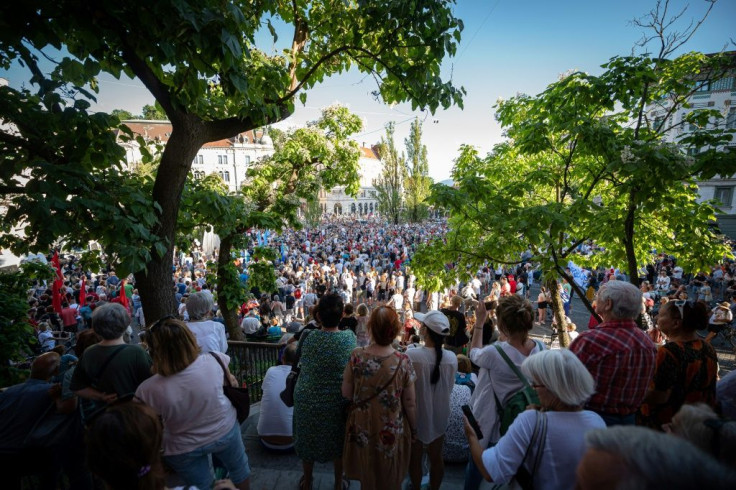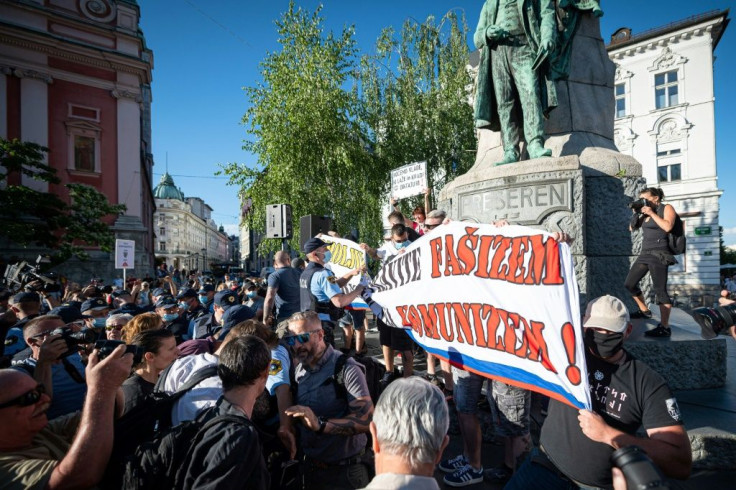Slovenians Mark 30th Independence Day With Rival Rallies
Political divisions were on display on Friday as rival rallies were held in Ljubljana to mark the 30th anniversary of Slovenia's independence.
While right-wing Prime Minister Janez Jansa presided over a large official rally in the capital, a few streets away thousands of anti-Jansa activists, backed by unions and the centre-left opposition, held a rival event.

Jansa took office in March 2020 just as the pandemic hit, and critics accuse him of exploiting the emergency to target media outlets that he deems hostile and to corrode democratic institutions.
IT student Matjaz Skerjanc turned out at the opposition event to demand an end to Jansa's government as soon as possible because of what he called its corruption.

"They have been using the coronavirus crisis to frighten people," he told AFP.
Sasa Jenko Pahor, a woman in her 60s, said she was protesting "because the constitution in our country is not being respected".
The official celebration was held later in the evening, with Jansa welcoming several leaders from neighbouring countries, including his close ally, Hungarian Prime Minister Viktor Orban, as well as European Council chief Charles Michel.

Thousands of flag-waving attendees gathered for a night of music and speeches in front of the national parliament.
Orban praised Slovenia's "tradition, spirit and pride" as well as its current "courageous leadership".

Michel meanwhile stressed the importance of "democracy, freedom and rule of law", adding that "diversity, tolerance and mutual respect is our strength, not our weakness".
The evening was rounded off with a speech from Jansa in which he pledged to guard against "double standards", followed by a firework display.
Some of Jansa's recent actions -- notably the cutting off of funding for public news agency STA -- have drawn rebukes from Brussels.
Slovenia takes over the rotating European Union presidency on July 1.
Friday's rallies mark 30 years since the Alpine state, along with neighbouring Croatia, declared independence from the former Yugoslavia.
While Slovenia achieved independence after a comparatively short conflict, the events marked the beginning of years of bloodshed in the wider region.
Slovenian authorities have lifted most coronavirus restrictions for the two million-strong population, with a falling caseload over the past month and the economy recovering faster than anticipated.
While spared the worst of the first wave of the pandemic, Slovenia suffered surging infections over the autumn and winter, leaving it with one of the worst Covid-19 death rates in the EU.
According to a poll published this week by the daily Dnevnik newspaper, 66 percent of citizens are dissatisfied with the government while only 30 percent describe it as successful.
Even though some MPs have peeled away from Jansa's coalition in parliament, two opposition attempts to oust him this year have failed.
© Copyright AFP 2024. All rights reserved.




















